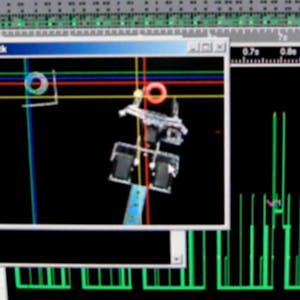The Real-Time Embedded Systems specialization is a comprehensive series of four courses designed to equip learners with the necessary skills and knowledge to become proficient in real-time embedded systems. Throughout the program, participants will delve into hard-to-master topics such as predictable response services, hardware vs. software allocation, and mission-critical design.
With a focus on hands-on practice, the program provides an affordable and accessible project hardware, leveraging Linux real-time extensions and open-source RTOS. Learners will gain experience in building a real system project with real-time challenges, enhancing their confidence and expertise in the field.
Upon completion of all four courses, participants will be equipped with the skills of an intermediate to advanced real-time system practitioner, opening up opportunities in various industries such as medical, aerospace, transportation, energy, digital entertainment, and telecommunications.
Certificate Available ✔
Get Started / More Info
The Real-Time Embedded Systems specialization encompasses four comprehensive modules, covering a range of topics from the foundational understanding of real-time embedded systems to advanced analysis and design techniques.
A beginning practitioner's understanding of rate monotonic theory, analysis, and practices for embedded systems, including the implementation of real-time services as POSIX threads. Learners will gain insights into the differences between Linux user space and kernel space, laying the foundation for further exploration in subsequent modules.
This module delves into methods for analyzing dynamic priority real-time service feasibility, as well as techniques for controlling unbounded priority inversion problems. Participants will also learn about avoiding and recovering from deadlock and unbounded priority inversion, essential skills for effective real-time system analysis and design.
Participants will explore the use of SECDED codes for ECC memories and the functioning of flash file systems, including wear leveling and the write amplification metric. Additionally, the module covers the differences and common characteristics of high availability and high reliability, as well as methods and design for redundant hardware with cross strapping and recovery.
This final module focuses on real-time system design concepts, the de-coupling of I/O from real-time processing, and the use of AMP design principles with Rate Monotonic policy, analysis, and theory. Participants will also learn about using AMP design principles with best-effort and parallel real-time co-processing, providing a comprehensive understanding of real-time project for embedded systems.
Digital Signal Processing is a comprehensive specialization covering discrete-time signals, Fourier transform analysis, digital filters, and real-time DSP implementation...
Electrodynamics: Electric and Magnetic Fields offers a comprehensive exploration of magnetostatics, electromotive force, and their practical applications in various...
Introduction to Embedded Systems Software and Development Environments is a hands-on course focusing on ARM based Microcontrollers, software configuration management,...
Sistemas Digitales: De las puertas lógicas al procesador is an essential course for students and enthusiasts entering the world of digital systems. It covers system...